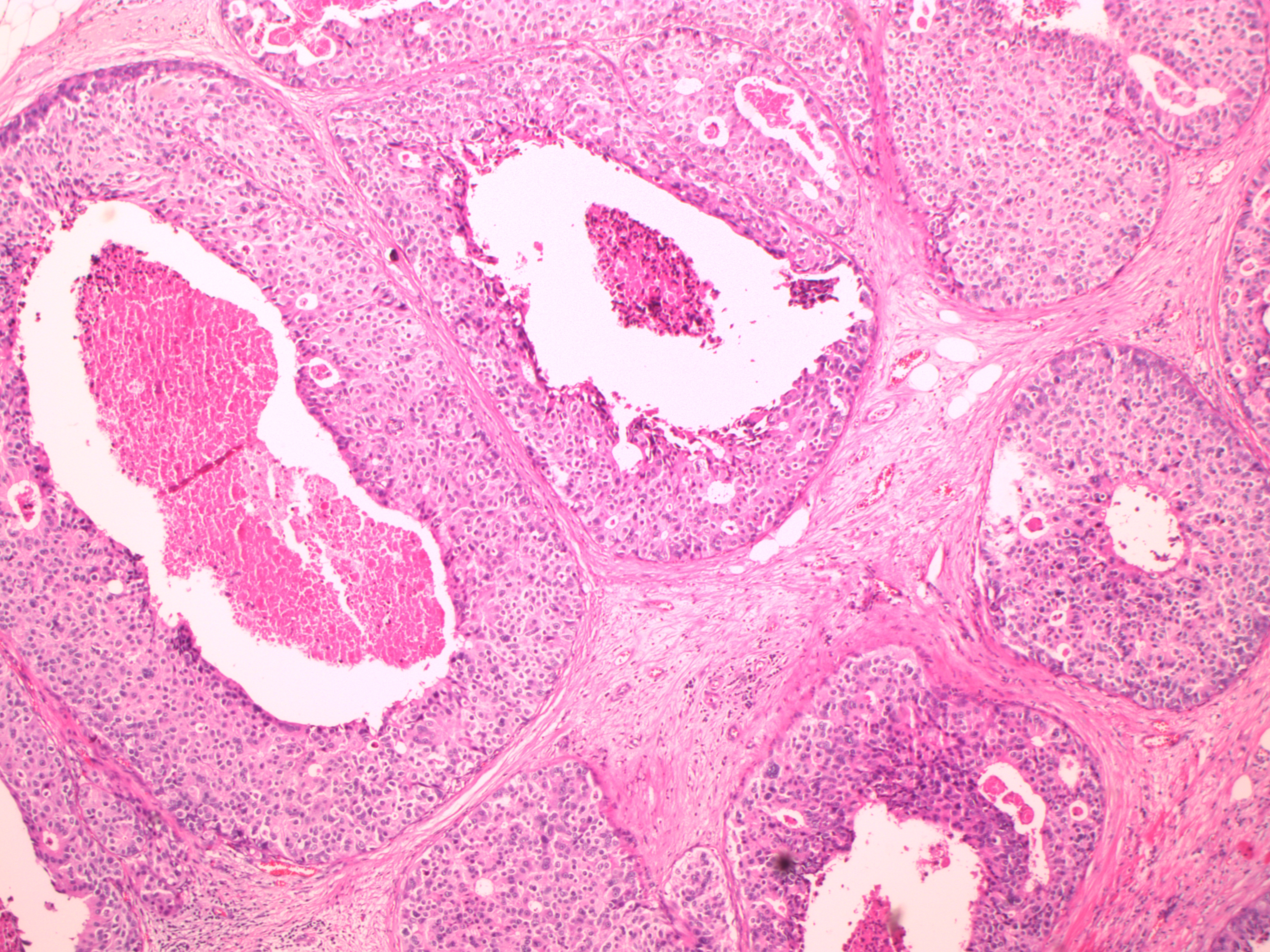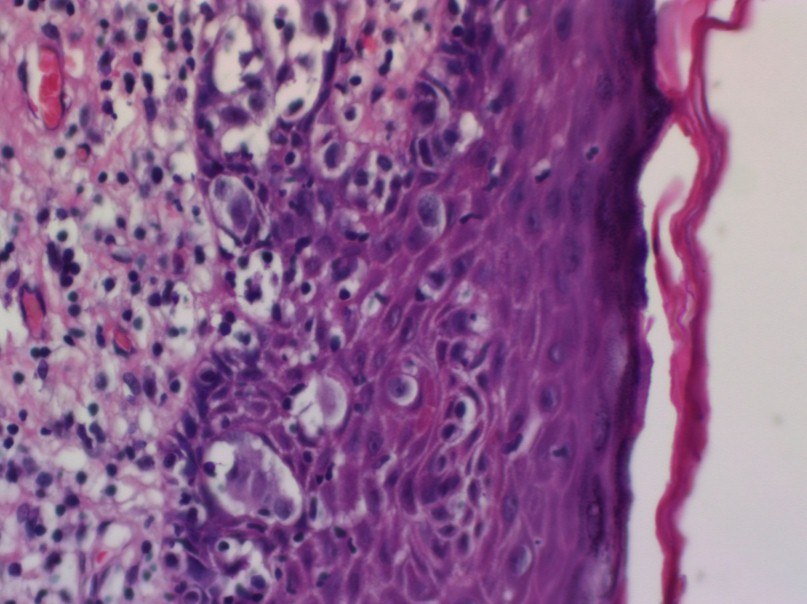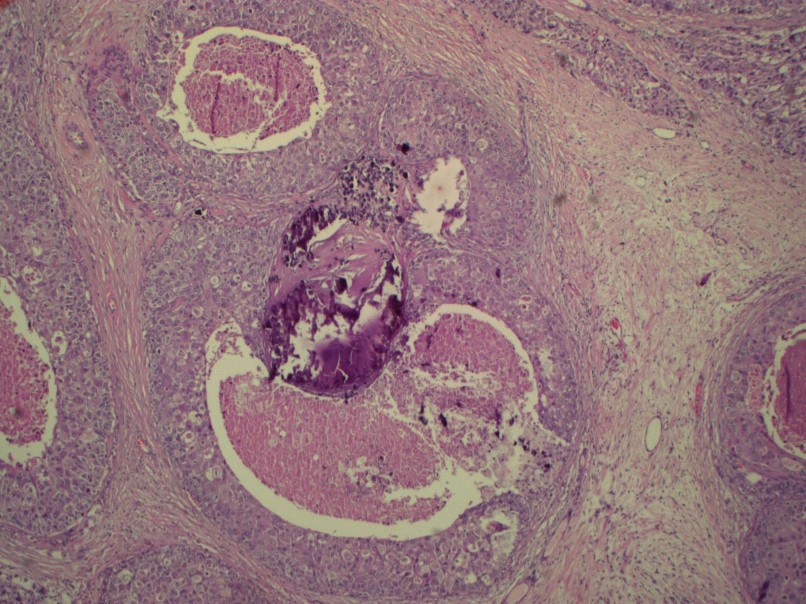|
Breast pathology – Histopathology of the breast – Description and significance of the components of the report – Features of DCIS |   |
DCIS associated with invasive carcinoma increases the risk of local recurrence for women undergoing breast-conserving surgery. It is more important to report the features of DCIS when in situ disease is predominant (e.g. cases of DCIS with microinvasion or extensive DCIS associated with T1a carcinoma). If DCIS is a minimal component of the invasive carcinoma, the features of the DCIS have less clinical relevance.
The pathology report should specify whether extensive DCIS (EIC) is present.
EIC-positive carcinomas are defined by the following criteria:
- More than 25% of the area within the invasive carcinoma is DCIS and DCIS is also present outside the area of invasive carcinoma in the surrounding breast parenchyma.
- There is extensive DCIS associated with a small (10 mm or less) invasive carcinoma.
Features of DCIS to be documented for the surgical pathology report
- EIC: Present or absent.
- Size (extent) of DCIS: Methods for estimating the extent of DCIS include directly measuring the lesion when confined to a single histology slide, determining size by submitting the entire specimen in sequence and in sections of uniform thickness, or counting the number of blocks with DCIS.
- Cytonuclear grade: Low, intermediate, or high.
- Presence of necrosis: Focal (punctate) necrosis or central (comedo) necrosis.
- Architectural pattern: Cribriform, comedo, solid, micropapillary or papillary.
- Paget disease (DCIS involving nipple skin contiguous with lactiferous sinuses).
- Margins:
- If positive, note whether focal or minimal or moderate or extensive involvement.
- If negative, the distance from any margin to the nearest focus of DCIS should be mentioned.
- Microcalcifications (specify within DCIS or elsewhere) are useful for pathological–radiological correlation.
|
.png)
Click on the pictures to magnify and display the legends

Click on this icon to display a case study
25 avenue Tony Garnier CS 90627 69366, LYON CEDEX 07 France - Tel: +33 (0)4 72 73 84 85 © IARC 2025 - Terms of use - Privacy Policy.
| .png)







.jpg)
.jpg)
.jpg)
.jpg)

